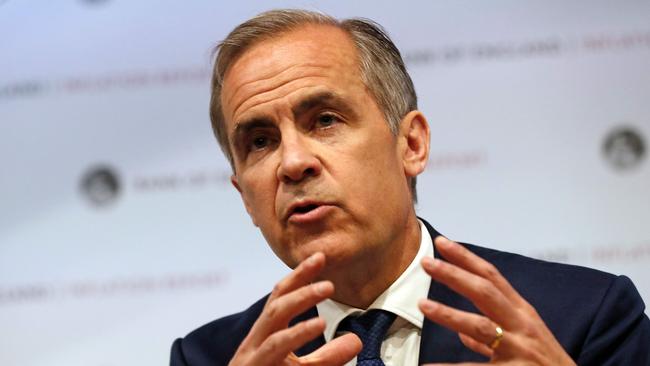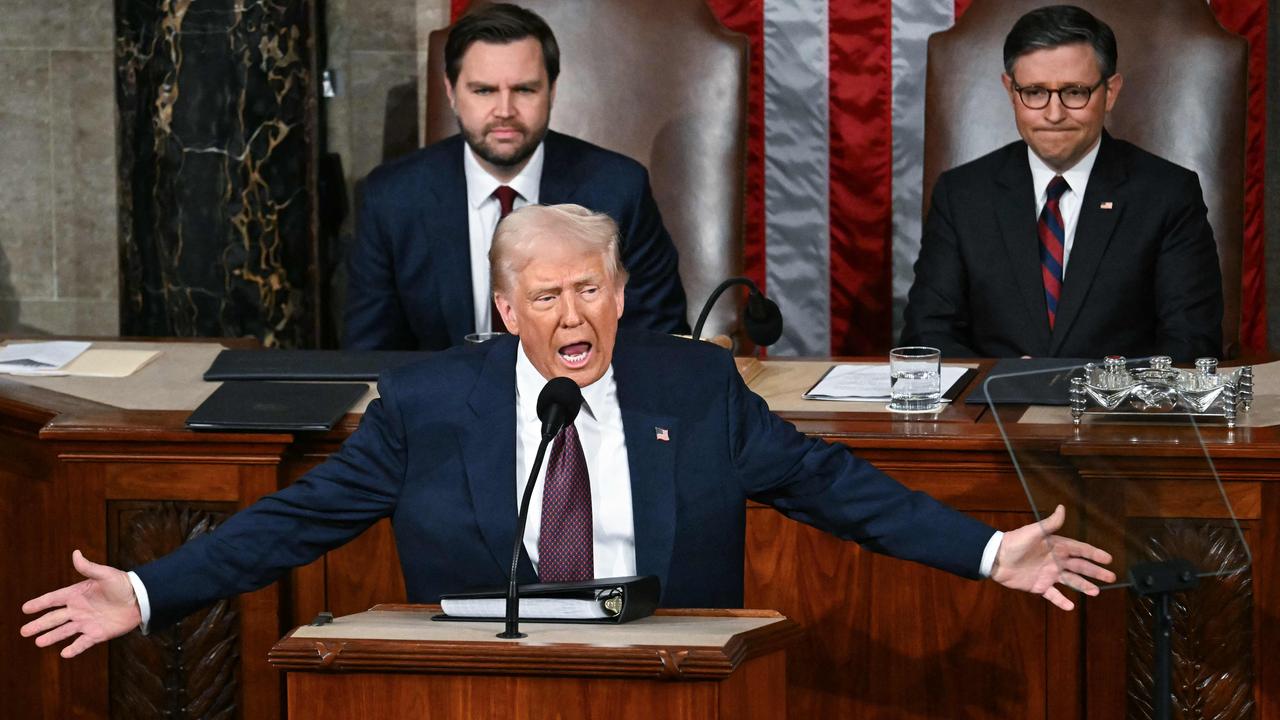Bank of England lifts interest rates to 0.75 per cent, second move in a decade
The Bank of England has pushed interest rates above their financial crisis lows with an uncertain Brexit on the horizon.

The Bank of England has pushed interest rates above their financial crisis lows but signalled it is in no hurry to raise them further with an uncertain Brexit on the horizon.
The BoE’s nine rate-setters were unexpectedly unanimous in their vote to raise rates to 0.75 from 0.50 per cent, the level at which they have spent most of the past decade apart from 15 months after the Brexit vote when they were cut even lower.
Economists polled by Reuters had mostly expected a 7-2 vote in favour of raising rates.
The move marks the latest small step by a major central bank to dial back the monetary stimulus that has been supporting the global economy since financial crisis tipped the world into recession in 2009.
The US Federal Reserve held short-term interest rates steady on Wednesday but is expected to raise them again next month, while the European Central Bank is on track to phase out its bond-buying program this year. The Reserve Bank of Australia has kept the cash rate firmly on hold at a low of 1.5 per cent, with most economists tipping any increase won’t be until next year.
The BoE said Britain’s economy, while growing more slowly than in the past ahead of Brexit, was operating at almost its “speed limit,” or full capacity, raising the prospect of more homegrown inflation pressure ahead.
But the message for interest rates remained one of gradual and limited increases as the central bank saw inflation only a fraction above its 2 per cent target over the next few years.
The forecast was based on bets by investors who only expect another rate hike in late 2019 or early 2020 with Bank Rate creeping up to 1.1 per cent in late 2020. That was a fraction lower than a projection of rates of 1.2 per cent the last time the BoE published forecasts for the economy in May.
The world’s fifth-biggest economy has slowed since the referendum decision in 2016 to leave the European Union.
With less than eight months until Brexit, London and Brussels — as well as key members of Prime Minister Theresa May’s Conservative Party — remain far apart on what the future trading relationship should look like.
The BoE said the economy “could be influenced significantly by the response of households, businesses and financial markets” to news on Brexit. However, the BoE continued to stress that Britain’s economy was at risk of too much inflation even with its slow growth.
The central bank said inflation in two years’ time was likely to be 2.09 per cent, above the BoE’s 2 per cent target.
The BoE said it expected Britain’s economy would grow by 1.4 per cent this year, unchanged from its forecast in May, but it nudged up its forecast for growth in 2019 to 1.8 per cent from a previous projection of 1.7 per cent. Wages were likely to be growing by an annual 2.5 per cent at the end of this year, a bit slower than forecast in May, before picking up to 3.25 per cent in 2019, unchanged from before.
Several private-sector economists have challenged the BoE’s view that inflation pressures are building and say raising rates now only risks a U-turn by the central bank if Britain fails to get a Brexit deal.
BoE Governor Mark Carney has said all bets on future BoE rate hikes would be off if there is a no-deal Brexit.
Reuters, with agencies



To join the conversation, please log in. Don't have an account? Register
Join the conversation, you are commenting as Logout